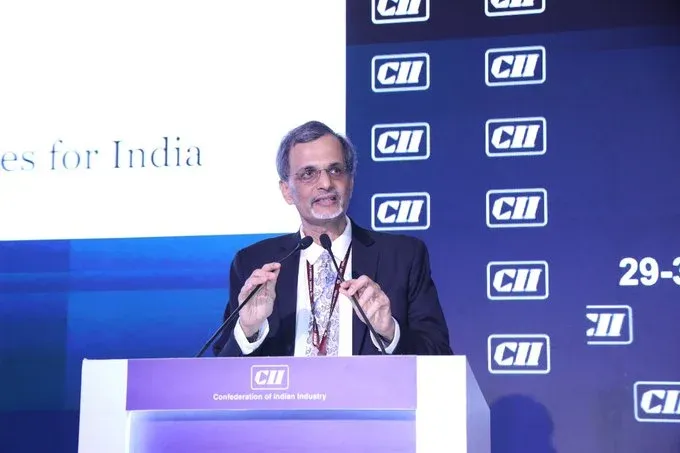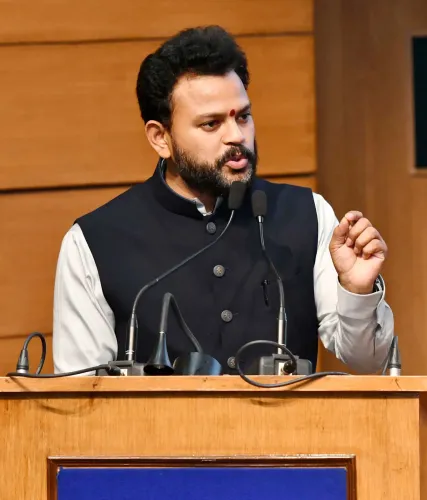How Can Trust and Deregulation Lead to Long-Term Economic Prosperity?

Synopsis
Key Takeaways
- Trust and deregulation are crucial for economic growth.
- Private sector collaboration is essential for nation-building.
- Focus on education and skilling for the youth is necessary.
- Regulatory frameworks must improve for better investment.
- India targets a $5 trillion economy by 2027-28.
New Delhi, May 29 (NationPress) Trust, deregulation, and reciprocation are fundamental components in steering clear of the middle-income trap and attaining long-term economic prosperity, stated Chief Economic Advisor (CEA) Dr V. Anantha Nageswaran during a talk on Thursday.
While addressing the CII ‘Annual Business Summit 2025’, Dr Nageswaran stressed the essential policy priorities for India aimed at both sustainable development and economic growth.
He pointed out that vital areas include ensuring energy affordability and security while transitioning through power sector reforms, addressing the repercussions of AI on employment, promoting equitable income distribution, and concentrating on education and skilling for the younger generation.
The CEA further highlighted the importance of fostering manufacturing and small to medium-sized enterprises (SMEs), boosting food security and agricultural productivity, stimulating private sector investment, and aligning economic growth with energy strategies and external factors, which are all vital for a robust and competitive economy.
He noted, “The role of the private sector in nation-building is essential and requires a collaborative effort between the government, private entities, and academia. To attain developed economy status by 2047, the private sector must act with social responsibility, ensuring an equitable distribution of capital and labor.”
This entails fair income distribution, ensuring workplace safety, investing in research and development, and prioritizing mental health, among other aspects.
On a macroeconomic level, the CEA highlighted that the IMF anticipates India will achieve a $5 trillion economy by 2027-28.
He asserted, “Reaching this significant milestone while evading the middle-income trap necessitates enhancements to living standards. Trust, deregulation, and reciprocation from the private sector are crucial for nurturing sustainable growth and ensuring economic resilience.”
Sunil Mathur, Managing Director and CEO of Siemens Limited, emphasized the necessity for improved regulatory frameworks in the nation by adopting best practices such as Regulatory Impact Assessment (RIA) for new regulations.
CII Vice President R. Mukundan underlined the need for transformative reforms and proposed a comprehensive agenda aimed at boosting India’s competitiveness, which addresses adopting a consultative method in policymaking similar to the GST Council, investing in human capital alongside physical infrastructure, increasing female labor force participation, significantly raising in-house R&D expenditure, and advancing towards sustainable growth.









